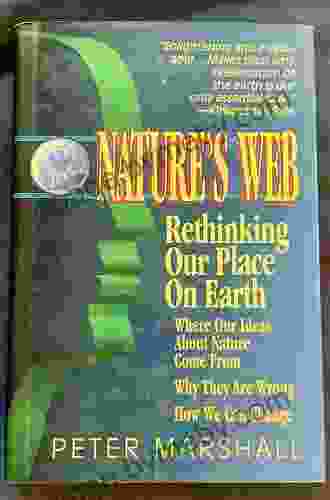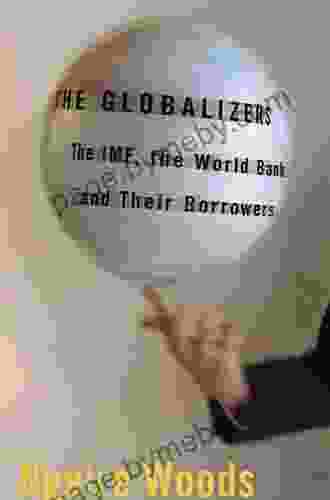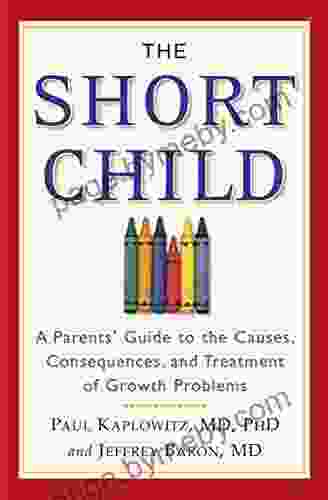Unveiling the IMF, World Bank, and Their Borrowers: A Comprehensive Analysis


The International Monetary Fund (IMF) and the World Bank are two of the most powerful and influential financial institutions in the world. They play a major role in the global economy, lending money to governments and businesses and providing technical assistance and policy advice to developing countries. However, these institutions have also been criticized for their policies, which have been accused of being harmful to poor countries.
4.3 out of 5
| Language | : | English |
| File size | : | 842 KB |
| Text-to-Speech | : | Enabled |
| Screen Reader | : | Supported |
| Enhanced typesetting | : | Enabled |
| Word Wise | : | Enabled |
| Print length | : | 266 pages |
This article will provide a comprehensive analysis of the IMF and World Bank, their borrowers, and the impact of their policies on developing countries. We will examine the history of these institutions, their governance structure, their lending practices, and their policy recommendations. We will also provide an assessment of the impact of IMF and World Bank policies on poverty, inequality, and economic growth in developing countries.
History of the IMF and World Bank
The IMF was founded in 1944 at the Bretton Woods Conference in New Hampshire. The purpose of the IMF was to promote international monetary cooperation and to provide financial assistance to countries experiencing balance of payments problems. The World Bank was also founded in 1944, as the International Bank for Reconstruction and Development. The purpose of the World Bank was to provide loans to developing countries for infrastructure projects and other development purposes.
Both the IMF and World Bank are headquartered in Washington, D.C. The IMF has 189 member countries, while the World Bank has 188 member countries. The IMF and World Bank are governed by a Board of Governors, which is composed of one representative from each member country. The Board of Governors meets annually to set the policies of the institutions.
Lending Practices of the IMF and World Bank
The IMF and World Bank provide loans to governments and businesses in developing countries. The IMF provides short-term loans to countries experiencing balance of payments problems. These loans are typically provided with conditions that require the borrowing country to implement economic reforms. The World Bank provides long-term loans to developing countries for infrastructure projects and other development purposes. These loans are typically provided with conditions that require the borrowing country to implement specific policy reforms.
The IMF and World Bank have been criticized for their lending practices, which have been accused of being harmful to poor countries. Critics argue that the IMF's conditionality requirements often force countries to implement austerity measures that have a negative impact on the poor. Critics also argue that the World Bank's policy recommendations often promote a neoliberal economic model that has led to increased inequality and poverty in developing countries.
Policy Recommendations of the IMF and World Bank
The IMF and World Bank provide policy recommendations to developing countries on a wide range of economic issues. These recommendations cover topics such as fiscal policy, monetary policy, trade policy, and social policy. The IMF and World Bank's policy recommendations are often based on the principles of the Washington Consensus, a set of neoliberal economic policies that were promoted by the United States and other developed countries in the 1980s and 1990s.
The Washington Consensus policies have been criticized for their negative impact on developing countries. Critics argue that these policies have led to increased inequality, poverty, and environmental degradation.
Impact of IMF and World Bank Policies on Developing Countries
The impact of IMF and World Bank policies on developing countries has been the subject of much debate. Some argue that these policies have been beneficial to developing countries, while others argue that they have been harmful.
There is evidence to support both sides of this argument. On the one hand, IMF and World Bank policies have helped to stabilize the global economy and to promote economic growth in developing countries. On the other hand, these policies have also been associated with increased inequality, poverty, and environmental degradation in developing countries.
The overall impact of IMF and World Bank policies on developing countries is complex and difficult to assess. It is important to consider both the positive and negative effects of these policies when making an assessment.
The IMF and World Bank are two of the most powerful and influential financial institutions in the world. They play a major role in the global economy, lending money to governments and businesses and providing technical assistance and policy advice to developing countries. However, these institutions have also been criticized for their policies, which have been accused of being harmful to poor countries.
This article has provided a comprehensive analysis of the IMF and World Bank, their borrowers, and the impact of their policies on developing countries. We have examined the history of these institutions, their governance structure, their lending practices, and their policy recommendations. We have also provided an assessment of the impact of IMF and World Bank policies on poverty, inequality, and economic growth in developing countries.
The IMF and World Bank are complex institutions with a long history. Their policies have had a significant impact on the global economy and on the lives of millions of people in developing countries. It is important to understand the IMF and World Bank and their policies in Free Download to make informed decisions about the future of global development.
4.3 out of 5
| Language | : | English |
| File size | : | 842 KB |
| Text-to-Speech | : | Enabled |
| Screen Reader | : | Supported |
| Enhanced typesetting | : | Enabled |
| Word Wise | : | Enabled |
| Print length | : | 266 pages |
Do you want to contribute by writing guest posts on this blog?
Please contact us and send us a resume of previous articles that you have written.
 Book
Book Novel
Novel Page
Page Chapter
Chapter Text
Text Story
Story Genre
Genre Reader
Reader Library
Library Paperback
Paperback E-book
E-book Magazine
Magazine Newspaper
Newspaper Paragraph
Paragraph Sentence
Sentence Bookmark
Bookmark Shelf
Shelf Glossary
Glossary Bibliography
Bibliography Foreword
Foreword Preface
Preface Synopsis
Synopsis Annotation
Annotation Footnote
Footnote Manuscript
Manuscript Scroll
Scroll Codex
Codex Tome
Tome Bestseller
Bestseller Classics
Classics Library card
Library card Narrative
Narrative Biography
Biography Autobiography
Autobiography Memoir
Memoir Reference
Reference Encyclopedia
Encyclopedia Nicholas Roerich
Nicholas Roerich Patti Delano
Patti Delano Ryan Smithson
Ryan Smithson Ngugi Wa Thiong O
Ngugi Wa Thiong O Paraluman S Aspillera
Paraluman S Aspillera Simone Cave
Simone Cave Richard Langer
Richard Langer Si Robertson
Si Robertson Montana Hodges
Montana Hodges Wyatt Mclaren
Wyatt Mclaren Jim Gigliotti
Jim Gigliotti Neel Majumder
Neel Majumder Monica Moody
Monica Moody Pascal Dennis
Pascal Dennis Nisha Vora
Nisha Vora Virginia M Axline
Virginia M Axline Schalk Holloway
Schalk Holloway Sarah Noffke
Sarah Noffke Roberto Lovato
Roberto Lovato Nancy Mcdonald
Nancy Mcdonald
Light bulbAdvertise smarter! Our strategic ad space ensures maximum exposure. Reserve your spot today!

 Norman ButlerTwelve Views From The Distance: A Journey Through the Unseen and the Sublime
Norman ButlerTwelve Views From The Distance: A Journey Through the Unseen and the Sublime Preston SimmonsFollow ·10k
Preston SimmonsFollow ·10k Harry HayesFollow ·8.1k
Harry HayesFollow ·8.1k W.B. YeatsFollow ·9.8k
W.B. YeatsFollow ·9.8k Corey HayesFollow ·18.4k
Corey HayesFollow ·18.4k Jesse BellFollow ·19.1k
Jesse BellFollow ·19.1k Doug PriceFollow ·19.4k
Doug PriceFollow ·19.4k Devon MitchellFollow ·2.9k
Devon MitchellFollow ·2.9k Aubrey BlairFollow ·17.7k
Aubrey BlairFollow ·17.7k

 Isaac Bell
Isaac BellReminiscences of a Hebridean School Master, 1890-1913: A...
Immerse Yourself in a Captivating Memoir of...

 Blake Kennedy
Blake KennedyMaster the Art of True Connection in the Digital Realm:...
In an era marked by the omnipresence of...

 Terry Bell
Terry BellEleven Poems Printed With Three Well Designed Fonts For...
This book is a...

 Jacob Hayes
Jacob HayesThe Interwoven Symphony of Nature: Unraveling Our...
: In the tapestry of life, humanity's...

 Jamie Blair
Jamie BlairEscape to Sunrise Cottage
A Sanctuary of Tranquility...
4.3 out of 5
| Language | : | English |
| File size | : | 842 KB |
| Text-to-Speech | : | Enabled |
| Screen Reader | : | Supported |
| Enhanced typesetting | : | Enabled |
| Word Wise | : | Enabled |
| Print length | : | 266 pages |












